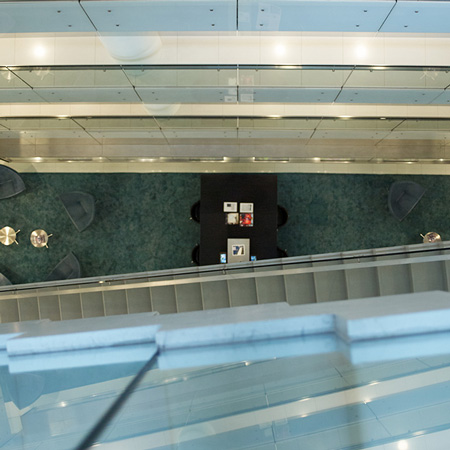
News Update Competition
Competition Law Developments in the Netherlands Q1 and Q2 2022
4 August 2022
In this News Update, we provide a high-level overview of the most notable competition law developments in the Netherlands during the first half of 2022.
Abuse of dominance
In the past six months, there have been considerable developments in the area of abuse of economic dominance.- Apple dating apps: In the ongoing dispute between Apple and the Netherlands Authority for Consumers and Markets ("ACM"), ACM imposed several orders subject to penalty payments. Apple had initially refused to adjust its allegedly unfair conditions for access to the App Store for dating-app providers. It was only once all penalties had been forfeited (EUR 50 million) that Apple adjusted its conditions to ACM's satisfaction.
- Emergis: The Trade and Industry Appeals Tribunal confirmed the earlier decision of the Dutch Healthcare Authority ("NZa") that Emergis has significant market power in the mental healthcare procurement market in the Dutch province of Zeeland. The NZa had imposed a transparency obligation regarding the effectiveness of the care, and a contract fairness obligation based on the Dutch healthcare regulatory framework.
- Leadiant: According to a leading Dutch financial newspaper, ACM had rejected an enforcement request from drug manufacturer Leadiant. The manufacturer had complained that health insurers colluded in refusing to negotiate with it on the price for a medicine – EUR 14,000 per 100 capsules – which had prompted ACM to fine Leadiant in 2021 for charging excessive prices.
Gun-jumping
Another theme that stands out is gun-jumping. Although it does not do so often, ACM recently imposed two fines for gun-jumping. Both decisions are likely to have been caused by unfortunate mistakes on the part of the undertakings concerned:- The Dutch trade association for pharmacies ("VNA"): ACM imposed a fine of EUR 350,000 on VNA for failing to notify ACM of the acquisition of four pharmacies. VNA had initially intended to sell off one of the four pharmacies. Had they done so, they would not have obtained lasting control over the pharmacy in question, and would thus have remained under the notification threshold. However, as the resale had always been uncertain – and ultimately did not take place – ACM decided that the acquisition should have been notified.
- Modulaire: Modulaire had a fine imposed of almost EUR 2 million for failing to notify ACM of an acquisition. The failure stemmed from a miscalculation: Modulaire omitted to include the group turnover in its calculations, and consequently did not realise that it exceeded the notification threshold.
ACM assesses sustainability initiatives
It should be clear by now that sustainability is one of ACM's key objectives. In the first half of 2022, ACM positively assessed several joint sustainability initiatives between competing companies. It is unknown whether ACM also assessed some initiatives negatively and sent parties back to the drawing board as a result. In Q3, ACM is continuing its sustainability drive by publishing its approval of a collaboration between manufacturers and supermarkets aimed at reducing the use of plastics in bottles.- Association for Energy, Environment and Water ("VEMW"): VEMW – an interest group for business users of energy and water – asked ACM to assess whether its plan to have its members jointly conclude a contract with future wind farm builders (in this case Hollandse Kust West) was permissible under the cartel prohibition. Such contracts stimulate the production of sustainable energy and are advantageous for VEMW's members as the price for their green energy is fixed for several years.
According to ACM, the initiative would not restrict competition and would promote the construction of wind farms. ACM also considered it relevant that it would remain possible to buy and sell renewable energy elsewhere. The only condition set by ACM is that the conclusion of the contracts be restricted to VEMW members. - System operators' CO2 agreements: System operators of cables and pipelines for gas and electricity sought to reach mutual agreement on a CO2 price for all system operators to use in their purchasing and investment decisions. This would make it more attractive to make investments aimed at reducing CO2 emissions. The CO2 price would be subsequently raised by means of a growth model, to remain in line with the price in the international CO2 emissions trading market. Having assessed the system operators' plans, ACM took the preliminary view that such an agreement at the current CO2 price of EUR 50 per tonne would not restrict competition because it would only constitute a small portion of the system operators' total costs. A different outcome would be possible if prices were higher. ACM concluded that, even with a higher price, the sustainability benefits would outweigh the potential costs. Moreover, ACM considered the collaboration necessary for reaping the benefits and stated that sufficient room for competition would remain.
- CO2 storage in the North Sea: Shortly before the issue of this semi-annual update, ACM published its informal view on the collaboration between Shell and TotalEnergies in the storage of CO2 in the North Sea, which involves Shell and TotalEnergies jointly setting the price for limited storage capacity (20%). This collaboration is part of the Aramis project, in which Shell, TotalEnergies, EBN and Gasunie are working together to build a trunkline to transport CO2 to empty gas fields, where it can be stored to prevent greenhouse gases from being released into the atmosphere. Such a project requires substantial investments. No agreements will be made for the remaining 80% of possible storage, which can be offered by any party having empty gas fields available. Although the competition between Shell and TotalEnergies will be restricted to a small extent, ACM considered the collaboration necessary to get the initiative off the ground. Here too, the benefits for customers and society as a whole outweigh the costs. The extensive informal assessment has also been published in English.
Written by:




